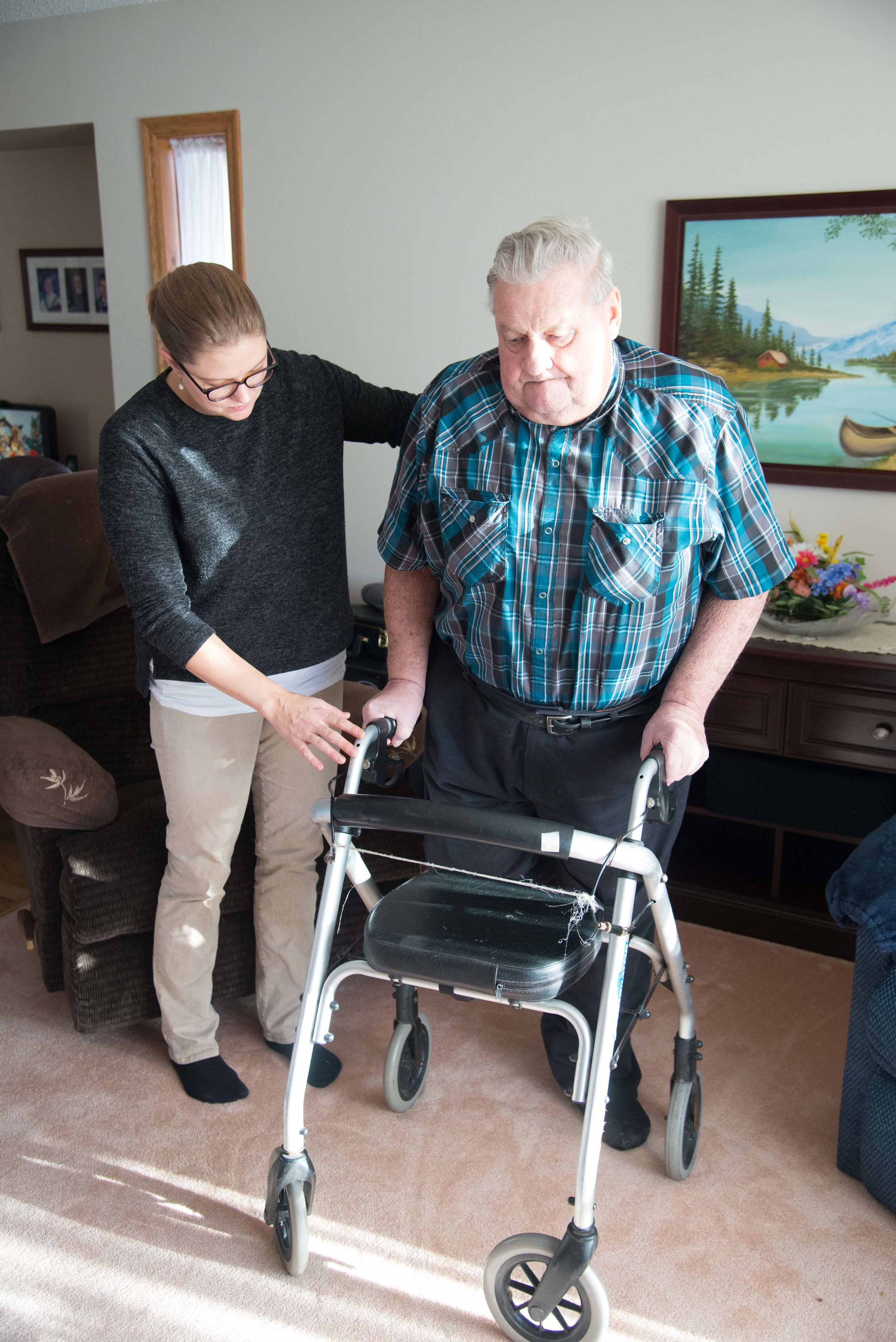Physiotherapy Home Visits
Mobile Physiotherapy
Our physiotherapists will travel to you! We are skilled in working with people of all ages with a range of issues including pain, reduced mobility, chronic disease, strokes, cardiac issues, fractures, chronic pain, dizziness and recovery after surgery.
Covid19 Precautions
In order to provide safe and optimal treatment to all of our clients, all ARMP physiotherapists adhere to strict PPE (personal protective equipment) regulations as mandated by the province of Manitoba. In addition to meticulous hand hygiene, required PPE currently includes medical grade masks and eye protection for all patient interactions. Furthermore, all patients will be screened daily via phone prior to their appointment to complete a COVID 19 screening tool. If a patient, or anyone in their household, had recently travelled outside of Manitoba and has not met the requirements to either be double-vaccinated or to have quarantined as required, or has any cold or flu symptoms the appointment will be postponed. Although not mandatory, patients are encouraged to wear their own masks during treatments, and engage in frequent hand washing
What to expect:
Assessments
A physiotherapist will assess you using detailed history-taking as well as specific physical tests and measures, such as flexibility, range of motion, and strength. They will then analyze the assessment findings and use clinical reasoning to establish a diagnosis. Together, you will explore your current abilities and functional needs so the physiotherapist can plan treatments that are consistent with your goals and general health status, and which incorporate approaches and techniques supported by the best evidence available.
Treatments
Physiotherapy treatments can include the following:
Acupuncture
Rehabilitation following in-hospital joint replacements (hip and knee)
Personalized exercise programs designed to improve your strength, range of motion, and function
Massage
Joint mobilization and manipulation to reduce pain and stiffness
Hot and cold packs and modalities to relieve pain, reduce swelling, speed up the healing process, improve movement and function
Airway clearance methods to assist people with breathing difficulties
Management of incontinence including pelvic floor re-education
Functional activity and tolerance testing and training
Work and occupational re-training and return to work planning
Prescription, fabrication and application of assistive, adaptive, supportive and protective devices and equipment
Environmental change, focusing on removing barriers to function




